In spite of their differing perceptions of the architecture of the totalitarian superstate and how it exercised power and control over its residents, George Orwell and Aldus Huxley shared a fundamental conviction. They both argued that the established democracies of the West were moving quickly toward an historical moment when they would willingly relinquish the noble promises and ideals of liberal democracy and enter that menacing space where totalitarianism perverts the modern ideals of justice, freedom, and political emancipation. Both believed that Western democracies were devolving into pathological states in which politics was recognized in the interest of death over life and justice. Both were unequivocal in the shared understanding that the future of civilization was on the verge of total domination or what Hannah Arendt called “dark times.”
While Neil Postman and other critical descendants have pitted Orwell and Huxley against each other because of their distinctively separate notions of a future dystopian society,[1] I believe that the dark shadow of authoritarianism that shrouds American society like a thick veil can be lifted by re-examining Orwell’s prescient dystopian fable 1984 as well as Huxley’s Brave New World in light of contemporary neoliberal ascendancy. Rather than pit their dystopian visions against each other, it might be more productive to see them as complementing each other, especially at a time when to quote Antonio Gramsci “The crisis consists precisely in the fact that the old is dying and the new cannot be born; in this interregnum a great variety of morbid symptoms appear.” [2]
Both authors provide insights into the merging of the totalitarian elements that constitute a new and more hybridized form of authoritarian control, appearing less as fiction than a threatening portend of the unfolding 21st century. Consumer fantasies and authoritarian control, “Big Brother” intelligence agencies and the voracious seductions of privatized pleasures, along with the rise of the punishing state—which criminalizes an increasing number of behaviors and invests in institutions that incarcerate and are organized principally for the production of violence–and the collapse of democratic public spheres into narrow market-driven orbits of privatization–these now constitute the new order of authoritarianism.
Orwell’s “Big Brother” found more recently a new incarnation in the revelations of government lawlessness and corporate spying by whistleblowers such as Chelsea Manning, Jeremy Hammond, and Edward Snowden.[3] All of these individuals revealed a government that lied about its intelligence operations, illegally spied on millions of people who were not considered terrorists or had committed no crime, and collected data from every conceivable electronic source to be stored and potentially used to squelch dissent, blackmail people, or just intimidate those who fight to make corporate and state power accountable.[4] Orwell offered his readers an image of the modern state in which privacy was no longer valued as a civil virtue and a basic human right, nor perceived as a measure of the robust strength of a healthy and thriving democracy. In Orwell’s dystopia the right to privacy had come under egregious assault, but the ruthless transgressions of privacy pointed to something more sinister than the violation of individual rights. The claim to privacy, for Orwell, represented a moral and political principle by which to assess the nature, power, and severity of an emerging totalitarian state. Orwell’s warning was intended to shed light on the horrors of totalitarianism, the corruption of language, the production of a pervasive stupidity, and the endless regimes of state spying imposed on citizens in the mid-20th-century.
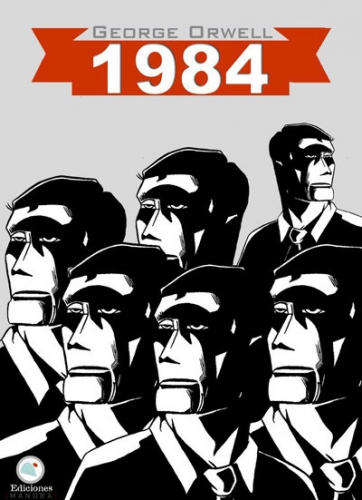 Orwell opened a door for all to see a “nightmarish future” in which everyday life becomes harsh, an object of state surveillance, and control—a society in which the slogan “ignorance becomes strength” morphs into a guiding principle of mainstream media, education, and the culture of politics. Huxley shared Orwell’s concern about ignorance as a political tool of the elite, enforced through surveillance and the banning of books, dissent, and critical thought itself. But Huxley, believed that social control and the propagation of ignorance would be introduced by those in power through the political tools of pleasure and distraction. Huxley thought this might take place through drugs and genetic engineering, but the real drugs and social planning of late modernity lies in the presence of an entertainment and public pedagogy industry that trades in pleasure and idiocy, most evident in the merging of neoliberalism, celebrity culture, and the control of commanding cultural apparatuses extending from Hollywood movies and video games to mainstream television, news, and the social media.
Orwell opened a door for all to see a “nightmarish future” in which everyday life becomes harsh, an object of state surveillance, and control—a society in which the slogan “ignorance becomes strength” morphs into a guiding principle of mainstream media, education, and the culture of politics. Huxley shared Orwell’s concern about ignorance as a political tool of the elite, enforced through surveillance and the banning of books, dissent, and critical thought itself. But Huxley, believed that social control and the propagation of ignorance would be introduced by those in power through the political tools of pleasure and distraction. Huxley thought this might take place through drugs and genetic engineering, but the real drugs and social planning of late modernity lies in the presence of an entertainment and public pedagogy industry that trades in pleasure and idiocy, most evident in the merging of neoliberalism, celebrity culture, and the control of commanding cultural apparatuses extending from Hollywood movies and video games to mainstream television, news, and the social media.
Orwell’s Big Brother of 1984 has been upgraded in the 2015 edition. As Zygmunt Bauman points out, if the older Big Brother presided over traditional enclosures such as military barracks, prisons, schools, and “countless other big and small panopticons, the updated Big Brother is not only concerned with inclusion and the death of privacy, but also the suppression of dissent and the widening of the politics of exclusion.[5] Keeping people out is the extended face of Big Brother who now patrols borders, hospitals, and other public spaces in order to “spot “the people who do not fit in the places they are in, banishing them from the place and departing them ‘where they belong,’ or better still never allowing them to come anywhere near in the first place.”[6]
This is the Big Brother that pushes youthful protests out of the public spaces they attempt to occupy. This is the hyper-nationalistic Big Brother clinging to notions of racial purity and American exceptionalism as a driving force in creating a country that has come to resemble an open air prison for the dispossessed. This is the Big Brother whose split personality portends the dark authoritarian universe of the 1 percent with their control over the economy and use of paramilitarised police forces, on the one hand, and, on the other, their retreat into gated communities manned by SWAT-like security forces.
The increasing militarization of local police forces who are now armed with weapons from the battlefields of Iraq and Afghanistan has transformed how the police respond to dealing with the public. Cops have been transformed into soldiers just as dialogue and community policing have been replaced by military-style practices that are way out of proportion to the crimes the police are trained to address. For instance, The Economist reported that “”SWAT teams were deployed about 3,000 times in 1980 but are now used around 50,000 times a year. Some cities use them for routine patrols in high-crime areas. Baltimore and Dallas have used them to break up poker games. In 2010 New Haven, Connecticut sent a SWAT team to a bar suspected of serving under-age drinkers. That same year heavily-armed police raided barber shops around Orlando, Florida; they said they were hunting for guns and drugs but ended up arresting 34 people for “barbering without a license”. Maricopa County, Arizona sent a SWAT team into the living room of Jesus Llovera, who was suspected of organizing cockfights.”[7]
In the advent of the recent display of police force in Ferguson, Missouri and Baltimore, Maryland it is unfair to view the impact of the rapid militarization of local police on poor black communities as nothing short of terrifying and symptomatic of the violence that takes place in authoritarian societies. For instance, according to a recent report produced by the Malcolm X Grassroots
Movement entitled Operation Ghetto Storm, ‘police officers, security guards, or self-appointed vigilantes extra judicially killed at least 313 African-Americans in 2012…This means a black person was killed by a security officer every 28 hours’. Michelle Alexander adds to the racist nature of the punishing state by pointing out that “There are more African American adults under correctional control today — in prison or jail, on probation or parole — than were enslaved in 1850, a decade before the Civil War began.”[8] Meanwhile the real violence used by the state against poor minorities of color, women, immigrants, and low income adults barely gets mentioned, except when it is so spectacularly visible that it cannot be ignored as in the cases of Eric Garner who was choked to death by a New York City policeman after he was confronted for illegally selling untaxed cigarettes. Or the case of Freddie Gray who had his spine severed and voice box crushed for making eye contact with a cop. These cases are not exceptional. For too many blacks, the police have turned their neighborhoods into war zones where cops parading as soldiers act with impunity.
Fear and isolation constitute an updated version of Big Brother. Fear is managed and is buttressed by a neoliberal logic that embraces the notion that while fear be accepted as a general condition of society, how it is dealt with by members of the American public be relegated to the realm of the private, dealt with exclusively as an individual consideration, largely removed from the collapse of authoritarian control and democratic rule, and posited onto the individual’s fear of the other. In the surveillance state, fear is misplaced from the political sphere and emergence of an authoritarian government to the personal concern with the fear of surviving, not getting ahead, unemployment, and the danger posed by the growing legions of the interminable others. As the older order dies, a new one struggles to be born, one that often produces a liminal space that gives rise to monsters, all too willing to kidnap, torture, and spy on law abiding citizens while violating civil liberties.[9] As Antonio Gramsci once suggested, such an interregnum offers no political guarantees, but it does provide or at least gestures towards the conditions to reimagine “what is to be done,” how it might be done, and who is going to do it.[10]
Orwell’s 1984 continues to serve as a brilliant and important metaphor for mapping the expansive trajectory of global surveillance, authoritarianism, and the suppression of dissent that has characterized the first decades of the new millennium. The older modes of surveillance to which Orwell pointed, including his warnings regarding the dangers of microphones and giant telescreens that watch and listen are surprisingly limited when compared with the varied means now available for spying on people. Orwell would be astonished by this contemporary, refashioned “Big Brother” given the threat the new surveillance state poses because of its reach and the alleged “advance” of technologies that far outstretch anything he could have imagined—technologies that pose a much greater threat to both the personal privacy of citizens and the control exercised by sovereign power.
In spite of his vivid imagination, “Orwell never could have imagined that the National Security Agency (NSA) would amass metadata on billions of our phone calls and 200 million of our text messages every day. Orwell could not have foreseen that our government would read the content of our emails, file transfers, and live chats from the social media we use.”[11] Edward Snowden and other critics are correct about the dangers of the state’s infringement of privacy rights, but their analysis should be taken further by linking the issue of citizen surveillance with the rise of “networked societies,” global flows of power, and the emergence of a totalitarian ethos that defies even state-based control.[12] For Orwell, domination was state imposed and bore the heavy hand of unremitting repression and a smothering language that eviscerated any appearance of dissent, erased historical memory, and turned the truth into its opposite. For Orwell, individual freedom was at risk under the heavy hand of state terrorism.
In Orwell’s world, individual freedom and privacy were under attack from outside forces. For Huxley, in contrast, freedom and privacy were willingly given up as part of the seductions of a soft authoritarianism, with its vast machinery of manufactured needs, desires, and identities. This new mode of persuasion seduced people into chasing commodities, and infantilized them through the mass production of easily digestible entertainment, disposable goods, and new scientific advances in which any viable sense of agency was undermined. The conditions for critical thought dissolved into the limited pleasures instant gratification wrought through the use of technologies and consuming practices that dampened, if not obliterated, the very possibility of thinking itself. Orwell’s dark image is the stuff of government oppression whereas Huxley’s is the stuff of distractions, diversions, and the transformation of privacy into a cheap and sensational performance for public display. Neil Postman, writing in a different time and worried about the destructive anti-intellectual influence of television sided with Huxley and believed that repression was now on the side of entertainment and the propensity of the American public to amuse themselves to death. [13] His attempt to differentiate Huxley’s dystopian vision from Orwell’s is worth noting. He writes:
Orwell warns that we will be overcome by an externally imposed oppression. But in Huxley’s vision, no Big Brother is required to deprive people of their autonomy, maturity and history. As he saw it, people will come to love their oppression, to adore the technologies that undo their capacities to think. What Orwell feared were those who would ban books. What Huxley feared was that there would be no reason to ban a book, for there would be no one who wanted to read one. Orwell feared those who would deprive us of information. Huxley feared those who would give us so much that we would be reduced to passivity and egoism. Orwell feared that the truth would be concealed from us. Huxley feared the truth would be drowned in a sea of irrelevance. Orwell feared we would become a captive culture. … As Huxley remarked in Brave New World Revisited, the civil libertarians and rationalists who are ever on the alert to oppose tyranny “failed to take into account man’s almost infinite appetite for distractions.” In 1984, Huxley added, people are controlled by inflicting pain. In Brave New World, they are controlled by inflicting pleasure. In short, Orwell feared that what we hate will ruin us. Huxley feared that what we love will ruin us.[14]
Echoes of Huxley’s insights play out in the willingness of millions of people who voluntarily hand over personal information whether in the service of the strange sociality prompted by social media or in homage to the new surveillance state. New surveillance technologies employ by major servers providers now focus on diverse consumer populations who are targeted in the collection of endless amounts of personal information as they move from one site to the next, one geopolitical region to the next, and across multiple screens and digital apparatuses. As Ariel Dorfman points out, “social media users gladly give up their liberty and privacy, invariably for the most benevolent of platitudes and reasons,”[15] all the while endlessly shopping online, updating Facebook, and texting. Indeed, surveillance technologies are now present in virtually every public and private space – such as video cameras in streets, commercial establishments, workplaces, and even schools as well as the myriad scanners at entry points of airports, retail stores, sporting events, and so on – and function as control mechanisms that become normalized through their heightened visibility. In addition, the all-encompassing world of corporate and state surveillance is aided by our endless array of personal devices that chart, via GPS tracking, our every move, our every choice, and every pleasure.
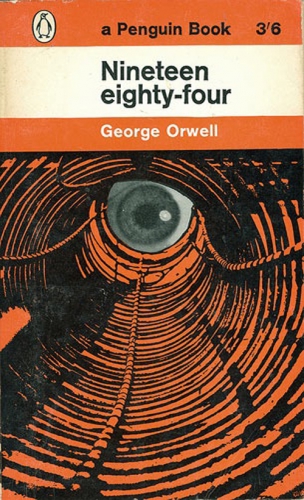 At the same time, Orwell’s warning about “Big Brother” applies not simply to an authoritarian-surveillance state but also to commanding financial institutions and corporations who have made diverse modes of surveillance a ubiquitous feature of daily life. Corporations use the new technologies to track spending habits and collect data points from social media so as to provide us with consumer goods that match our desires, employ face recognition technologies to alert store salesperson to our credit ratings, and so it goes. Heidi Boghosian points out that if omniscient state control in Orwell’s 1984 is embodied by the two-way television sets present in each home, then in “our own modern adaptation, it is symbolized by the location-tracking cell phones we willingly carry in our pockets and the microchip-embedded clothes we wear on our bodies.”[16] In this instance, the surveillance state is one that not only listens, watches, and gathers massive amounts of information through data mining, allegedly for the purpose of identifying “security threats.” It also acculturates the public into accepting the intrusion of commercial surveillance technologies – and, perhaps more vitally, the acceptance of privatized, commodified values – into all aspects of their lives. In other words, the most dangerous repercussions of a near total loss of privacy involve more than the unwarranted collecting of information by the government: we must also be attentive to the ways in which being spied on has become not only normalized, but even enticing, as corporations up the pleasure quotient for consumers who use new digital technologies and social networks – not least of all by and for simulating experiences of community.
At the same time, Orwell’s warning about “Big Brother” applies not simply to an authoritarian-surveillance state but also to commanding financial institutions and corporations who have made diverse modes of surveillance a ubiquitous feature of daily life. Corporations use the new technologies to track spending habits and collect data points from social media so as to provide us with consumer goods that match our desires, employ face recognition technologies to alert store salesperson to our credit ratings, and so it goes. Heidi Boghosian points out that if omniscient state control in Orwell’s 1984 is embodied by the two-way television sets present in each home, then in “our own modern adaptation, it is symbolized by the location-tracking cell phones we willingly carry in our pockets and the microchip-embedded clothes we wear on our bodies.”[16] In this instance, the surveillance state is one that not only listens, watches, and gathers massive amounts of information through data mining, allegedly for the purpose of identifying “security threats.” It also acculturates the public into accepting the intrusion of commercial surveillance technologies – and, perhaps more vitally, the acceptance of privatized, commodified values – into all aspects of their lives. In other words, the most dangerous repercussions of a near total loss of privacy involve more than the unwarranted collecting of information by the government: we must also be attentive to the ways in which being spied on has become not only normalized, but even enticing, as corporations up the pleasure quotient for consumers who use new digital technologies and social networks – not least of all by and for simulating experiences of community.
Many individuals, especially young people, now run from privacy and increasingly demand services in which they can share every personal facet of their lives. While Orwell’s vision touches upon this type of control, there is a notable difference that he did not foresee. According to Pete Cashmore, while Orwell’s “Thought Police tracked you without permission, some consumers are now comfortable with sharing their every move online.”[17] The state and corporate cultural apparatuses now collude to socialize everyone – especially young people – into a regime of security and commodification in which their identities, values, and desires are inextricably tied to a culture of commodified addictions, self-help, therapy, and social indifference. Intelligence networks now inhabit the world of major corporations such as Disney and the Bank of America as well as the secret domains of the NSA, FBI and fifteen other intelligence agencies. As Edward Snowden’s revelations about the PRISM program revealed, the NSA also collected personal data from all of the major high tech giant service providers who according to a senior lawyer for the NSA, “were fully aware of the surveillance agency’s widespread collection of data.”[18]
The fact is that Orwell’s and Huxley’s ironic representations of the modern totalitarian state – along with their implied defense of a democratic ideal rooted in the right to privacy and the right to be educated in the capacity to be autonomous and critical thinkers– has been transformed and mutilated almost beyond recognition by the material and ideological registers of a worldwide neoliberal order. Just as we can envision Orwell’s and Huxley’s dystopian fables morphing over time from “realistic novels” into a “real life documentary,” and now into a form of “reality TV,” privacy and freedom have been radically altered in an age of permanent, non-stop global exchange and circulation. That is, in the current moment, the right to privacy and freedom have been usurped by the seductions of a narcissistic culture and casino capitalism’s unending desire to turn every relationship into an act of commerce and to make all aspects of daily life subject to market forces under watchful eyes of both government and corporate regimes of surveillance. In a world devoid of care, compassion, and protection, personal privacy and freedom are no longer connected and resuscitated through its connection to public life, the common good, or a vulnerability born of the recognition of the frailty of human life. Culture loses its power as the bearer of public memory, civic literacy, and the lessons of history in a social order where the worst excesses of capitalism are left unchecked and a consumerist ethic “makes impossible any shared recognition of common interests or goals.”[19] With the rise of the punishing state along with a kind of willful amnesia taking hold of the larger culture, we see little more than a paralyzing fear and apathy in response the increasing exposure of formerly private spheres to data mining and manipulation, while the concept of privacy itself has all but expired under a “broad set of panoptic practices.”[20] With individuals more or less succumbing to this insidious cultural shift in their daily lives, there is nothing to prevent widespread collective indifference to the growth of a surveillance culture, let alone an authoritarian state.
The worse fears of Huxley and Orwell merge into a dead zone of historical amnesia as more and more people embrace any and every new electronic device regardless of the risks it might pose in terms of granting corporations and governments increased access to and power over their choices and movements. Detailed personal information flows from the sphere of entertainment to the deadly serious and integrated spheres of capital accumulation and policing as they are collected and sold to business and government agencies who track the populace for either commercial purposes or for fear of a possible threat to the social order and its established institutions of power. Power now imprisons not only bodies under a regime of surveillance and a mass incarceration state but also subjectivity itself as the threat of state control is now coupled with the seductions of the new forms of passive inducing soma: electronic technologies, a pervasive commodified landscape, and a mind numbing celebrity culture.
Underlying these everyday conveniences of modern life, as Boghosian documents in great detail, is the growing Orwellian partnership between the militarized state and private security companies in the United States. Each day, new evidence surfaces pointing to the emergence of a police state that has produced ever more sophisticated methods for surveillance in order to enforce a mass suppression of the most essential tools for democratic dissent: “the press, political activists, civil rights advocates and conscientious insiders who blow the whistle on corporate malfeasance and government abuse.”[21] As Boghosian points out, “By claiming that anyone who questions authority or engages in undesired political speech is a potential terrorist threat, this government-corporate partnership makes a mockery of civil liberties.”[22] Nowhere is this more evident than in American public schools where a youth are being taught that they are a generation of suspects, subject to the presence of armed police and security guards, drug sniffing dogs, and an array of surveillance apparatuses that chart their every move, not to mention in some cases how they respond emotionally to certain pedagogical practices.
Whistleblowers are not only punished by the government; their lives are also turned upside down in the process by private surveillance agencies and major corporations who now work in tandem. For instance, the Bank of America assembled 15 to 20 bank officials and retained the law firm of Hunton & Williams in order to devise “various schemes to attack WikiLeaks and Greenwald whom they thought were about to release damaging information about the bank.”[23] It is worth repeating that Orwell’s vision of surveillance and the totalitarian state look mild next to the emergence of a corporate-private-state surveillance system that wants to tap into every conceivable mode of communication, collect endless amounts of metadata to be stored in vast intelligence storage sites around the country, and use that data to repress any vestige of dissent.[24]
As Huxley anticipated, any critical analysis must move beyond documenting abuses of power to how addressing contemporary neoliberal modernity has created a social order in which individuals become complicit with authoritarianism. That is, how is unfreedom internalized? What and how do state and corporate controlled institutions, cultural apparatuses, social relations, and policies contribute to making a society’s plunge into dark times self-generating as Huxley predicted? Put differently, what is the educative nature of a repressive politics and how does it function to secure the consent of the American public? And, most importantly, how can it be challenged and under what circumstances? Aided by a public pedagogy, produced and circulated through a machinery of consumption and public relations tactics, a growing regime of repression works through the homogenizing forces of the market to support the widespread embrace of an authoritarian culture and police state.
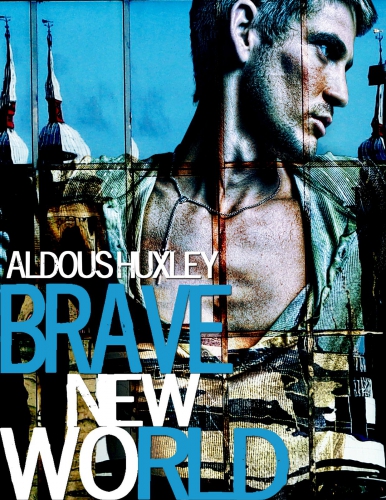 Relentlessly entertained by spectacles, people become not only numb to violence and cruelty but begin to identify with an authoritarian worldview. As David Graeber suggests, the police “become the almost obsessive objects of imaginative identification in popular culture… watching movies, or viewing TV shows that invite them to look at the world from a police point of view.”[25] But it is not just the spectacle of violence that ushers individuals into a world in which brutality becomes a primary force for mediating relations as well as the ultimate source of pleasure, there is also the production of an unchecked notion of individualism that both dissolves social bonds and removes any viable notion of agency from the landscape of social responsibility and ethical consideration.
Relentlessly entertained by spectacles, people become not only numb to violence and cruelty but begin to identify with an authoritarian worldview. As David Graeber suggests, the police “become the almost obsessive objects of imaginative identification in popular culture… watching movies, or viewing TV shows that invite them to look at the world from a police point of view.”[25] But it is not just the spectacle of violence that ushers individuals into a world in which brutality becomes a primary force for mediating relations as well as the ultimate source of pleasure, there is also the production of an unchecked notion of individualism that both dissolves social bonds and removes any viable notion of agency from the landscape of social responsibility and ethical consideration.
Absorbed in privatized orbits of consumption, commodification, and display, Americans vicariously participate in the toxic pleasures of the authoritarian state. Violence has become the organizing force of a society driven by a noxious notion of privatization in which it becomes difficult for ideas to be lifted into the public realm. Under such circumstances, politics is eviscerated because it now supports a market-driven view of society that has turned its back on the idea that social values, public trust, and communal relations are fundamental to a democratic society. This violence against the social mimics not just the death of the radical imagination, but also a notion of banality made famous by Hannah Arendt who argued that at the root of totalitarianism was a kind of thoughtlessness, an inability to think, and a type of outrageous indifference in which “There’s simply the reluctance ever to imagine what the other person is experiencing.” [26]
By integrating insights drawn from both Huxley and Orwell, it becomes necessary for any viable critical analysis to take a long view, contextualizing the contemporary moment as a new historical conjuncture in which political rule has been replaced by corporate sovereignty, consumerism becomes the only obligation of citizenship, and the only value that matters is exchange value. Precarity has replaced social protections provided by the state, just as the state cares more about building prisons and infantilizing the American public than it does about providing all of its citizens with quality educational institutions and health care. America is not just dancing into oblivion as Huxley suggested, it is also being pushed into the dark recesses of an authoritarian state. Orwell wrote dystopian novels but he believed that the sheer goodness of human nature would in the end be enough for individuals to develop modes of collective resistance he could only imagine in the midst of the haunting spectre of totalitarianism. Huxley was more indebted to Kafka’s notion of destabilization, despair, and hopelessness. For Huxley, the subject had lost his or her sense of agency and had become the product of a scientifically manufactured form of idiocy and conformity. Progress had been transformed into its opposite and science now needs to be liberated from itself. As Theodor Adorno has pointed out, where Huxley fails is that he has no sense of resistance. According to Adorno, “The weakness of Huxley’s entire conception is that it makes all its concepts relentlessly dynamic but nevertheless arms them against the tendency to turn into their own opposites.” [27] Hence, the forces of resistance are not simply underestimated but rendered impotent.
The authoritarian nature of the corporate-state surveillance apparatus and security system with its “urge to surveil, eavesdrop on, spy on, monitor, record, and save every communication of any sort on the planet”[28] can only be fully understood when its ubiquitous tentacles are connected to wider cultures of control and punishment, including security-patrolled corridors of public schools, the rise in super-max prisons, the hyper-militarization of local police forces, the justification of secret prisons and state-sanctioned torture abroad, and the increasing labeling of dissent as an act of terrorism in the United States. [29] This is part of Orwell’s narrative but it does not go far enough. The new authoritarian corporate-driven state deploys more subtle tactics to depoliticize public memory and promote the militarization of everyday life. Alongside efforts to defund public and higher education and to attack the welfare state, a wide-ranging assault is being waged across the culture on all spheres that encourage the public to hold power accountable. If these public institutions are destroyed, there will be few sites left in which to nurture the critical formative cultures capable of educating people to challenge the range of injustices plaguing the United States and the forces that reproduce them. One particular challenge comes from the success of neoliberal tyranny to dissolve those social bonds that entail a sense of responsibility toward others and form the basis for political consciousness. Under the new authoritarian state, perhaps the gravest threat one faces is not simply being subject to the dictates of what Quentin Skinner calls “arbitrary power,” but failing to respond with outrage when “my liberty is also being violated, and not merely by the fact that someone is reading my emails but also by the fact that someone has the power to do so should they choose.”[30] The situation is dire when people no longer seem interested in contesting such power. It is precisely the poisonous spread of a broad culture of political indifference that puts at risk the fundamental principles of justice and freedom which lie at the heart of a robust democracy. The democratic imagination has been transformed into a data machine that marshals its inhabitants into the neoliberal dream world of babbling consumers and armies of exploitative labor whose ultimate goal is to accumulate capital and initiate individuals into the brave new surveillance/punishing state that merges Orwell’s Big Brother with Huxley’s mind- altering soma.
Nothing will change unless people begin to take seriously the subjective underpinnings of oppression in the United States and what it might require to make such issues meaningful in order to make them critical and transformative. As Charles Derber has explained, knowing “how to express possibilities and convey them authentically and persuasively seems crucially important”[31] if any viable notion of resistance is to take place. The current regime of authoritarianism is reinforced through a new and pervasive sensibility in which people surrender themselves to the both the capitalist system and a general belief in its call for security. It does not simply repress independent thought, but constitutes new modes of thinking through a diverse set of cultural apparatuses ranging from the schools and media to the Internet. The fundamental question in resisting the transformation of the United States into a 21st-century authoritarian society must concern the educative nature of politics – that is, what people believe and how their individual and collective dispositions and capacities to be either willing or resistant agents are shaped.
I want to conclude by recommending five initiatives, though incomplete, that might help young people and others challenge the current oppressive historical conjuncture in which they along with other oppressed groups now find themselves. My focus is on higher education because that is the one institution that is under intense assault at the moment because it has not completely surrendered to the Orwellian state.[32]
First, there is a need for what can be called a revival of the radical imagination. This call would be part of a larger project “to reinvent democracy in the wake of the evidence that, at the national level, there is no democracy—if by ‘democracy’ we mean effective popular participation in the crucial decisions affecting the community.”[33] Democracy entails a challenge to the power of those individuals, financial elite, ruling groups, and large-scale enterprises that have hijacked democracy. At the very least, this means refusing to accept minimalist notions of democracy in which elections become the measure of democratic participation. Far more crucial is the struggle for the development public spaces and spheres that produce a formative culture in which the American public can imagine forms of democratic self-management of what can be called “key economic, political, and social institutions.”[34]
One step in this direction would be to for young people, intellectuals, scholars and other to go on the offensive in defending higher education as a public good, resisting as much as possible the ongoing attempt by financial elites to view its mission in instrumental terms as a workstation for capital. This means fighting back against a conservative led campaign to end tenure, define students as consumers, defund higher education, and destroy any possibility of faculty governance by transforming most faculty into adjuncts or what be called Walmart workers. Higher education should be harnessed neither to the demands of the warfare state nor the instrumental needs of corporations. In fact, it should be a viewed as a right rather than as an entitlement. Nowhere is this assault on higher education more evident than in the efforts of billionaires such as Charles and David Koch to finance academic fields, departments, and to shape academic policy in the interest of indoctrinating the young into the alleged neoliberal, free market mentality. It is also evident in the repressive policies being enacted at the state level by right-wing politicians. For instance, in Florida, Governor Rick Scott’s task force on education has introduced legislation that would lower tuition for degrees friendly to corporate interests in order to “steer students toward majors that are in demand in the job market.”[35] In Wisconsin, Governor Scott Walker drew up a proposal to remove the public service philosophy focus from the university’s mission statement which states that the university’s purpose is to solve problems and improve people’s lives. He also scratched out the phrase “the search for truth” and substituted both ideas with a vocabulary stating that the university’s goal is to meet “the state’s work force needs.”[36] But Walker’s disdain for higher education as a public good can be more readily understood given his hatred of unions, particularly those organized for educators. How else to explain his egregious comparison of union protesters to the brutal terrorists and thugs that make up ISIS and his ongoing attempts to eliminate tenure at Wisconsin’s public universities as well as to eviscerate any vestige of shared governance.[37]
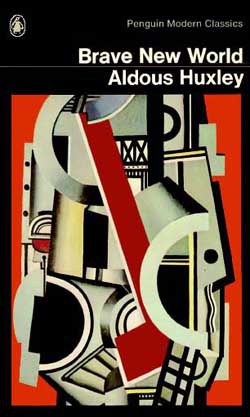 Another egregious example of neoliberalism’s Orwellian assault on higher education can be found in the policies promoted by the Republican Party members who control the North Carolina Board of Governors. Just recently it has decimated higher education in that state by voting to cut 46 degree programs. One member defended such cuts with the comment: “We’re capitalists, and we have to look at what the demand is, and we have to respond to the demand.”[38] The ideology that drives this kind of market-driven assault on higher education was made clear by Republican governor, Pat McCrory who said in a radio interview “If you want to take gender studies, that’s fine, go to a private school and take it. But I don’t want to subsidize that if that’s not going to get someone a job.”[39] This is more than an example of crude economic instrumentalism, it is also a recipe for instituting an academic culture of thoughtlessness and a kind of stupidity receptive to what Hannah Arendt once called totalitarianism.
Another egregious example of neoliberalism’s Orwellian assault on higher education can be found in the policies promoted by the Republican Party members who control the North Carolina Board of Governors. Just recently it has decimated higher education in that state by voting to cut 46 degree programs. One member defended such cuts with the comment: “We’re capitalists, and we have to look at what the demand is, and we have to respond to the demand.”[38] The ideology that drives this kind of market-driven assault on higher education was made clear by Republican governor, Pat McCrory who said in a radio interview “If you want to take gender studies, that’s fine, go to a private school and take it. But I don’t want to subsidize that if that’s not going to get someone a job.”[39] This is more than an example of crude economic instrumentalism, it is also a recipe for instituting an academic culture of thoughtlessness and a kind of stupidity receptive to what Hannah Arendt once called totalitarianism.
Second, young people and progressives need create the institutions and public spaces in which education becomes central to as a counter-narrative that serves to both reveal, interrogate, and overcome the common sense assumptions that provide the ideological and affective webs that tie many people to forms of oppression. Domination is not just structural and its subjective roots and pedagogical mechanisms need to be viewed as central to any politics that aims to educate, change individual and collective consciousness, and contribute to broad-based social formations. Relatedly, a coalition of diverse social movements from unions to associations of artists, educators, and youth groups need to develop a range of alternative public spheres in which young people and others can become cultural producers capable of writing themselves back into the discourse of democracy while bearing witness to a range of ongoing injustices from police violence to the violence of the financial elite.
Third, America has become a society in which the power at the state and national levels has become punitive for most Americans and beneficial for the financial and corporate elite. Punishment creep now reaches into almost every commanding institution that holds sway over the American public and its effects are especially felt by the poor, blacks, young people, and the elderly. While the American public is distracted by Bruce Jenner’ sex change, millions of young men are held in prisons and jails across the United States, and most of them for nonviolent crimes. Working people are punished for a lifetime of work by having their pensions either reduced or taken away. Poor people are denied Medicaid because right-wing politicians believe the poor should be financially responsible for their health care. And so it goes. The United States is one of the few countries that allow teenagers to be tried as adults, even though there are endless stories of such youth being abused, beaten, and in some cases committing suicide as a result of such savage treatment. Everywhere we look in American society, routine behavior is being criminalized. If you owe a parking ticket, you may end up in jail. If you violate a dress code as a student you may be handcuffed by the police and charged with a criminal offense. A kind of mad infatuation with violence is matched by an increase in state lawlessness. In particular, young people have been left out of the discourse of democracy. They are the new disposables who lack jobs, a decent education, hope, and any semblance of a future better than the one their parents inherited.
In addition, an increasing numbers of youth suffer mental anguish and overt distress even, perhaps especially, among the college bound, debt-ridden, and unemployed whose numbers are growing exponentially. Many reports claim that “young Americans are suffering from rising levels of anxiety, stress, depression and even suicide. For example, “One out of every five young people and one out of every four college students … suffers from some form of diagnosable mental illness.”[40] According to one survey, “44 percent of young aged 18 to 24 say they are excessively stressed.”[41] One factor may be that there are so few jobs for young people. In fact the Jobless rate for Americans aged 15 to 24 stands at 15.8 percent, more than double the unemployment rate of 6.9 per cent for all ages, according to the World Bank.”[42] Facing what Richard Sennett calls the “spectre of uselessness,” the war on youth serves as a reminder of how finance capital has abandoned any viable vision of democracy, including one that would support future generations. The war on youth has to be seen as a central element of state terrorism and crucial to critically engaging the current regime of neoliberalism.
Fourth, As the claims and promises of a neoliberal utopia have been transformed into an Orwellian and Dickensian nightmare, the United States continues to succumb to the pathologies of political corruption, the redistribution of wealth upward into the hands of the 1 percent, the rise of the surveillance state, and the use of the criminal justice system as a way of dealing with social problems. At the same time, Orwell’s dark fantasy of an authoritarian future continues without enough massive opposition as students, low income, and poor minority youth are exposed to a low intensity war in which they are held hostage to a neoliberal discourse that translates systemic issues into problems of individual responsibility. This individualization of the social is one of the most powerful ideological weapons used by the current authoritarian regime and must be challenged.
Under the star of Orwell, morality loses its emancipatory possibilities and degenerates into a pathology in which misery is denounced as a moral failing. Under the neo-Darwinian ethos of survival of the fittest, the ultimate form of entertainment becomes the pain and humiliation of others, especially those considered disposable and powerless, who are no longer an object of compassion, but of ridicule and amusement. This becomes clear in the endless stories we are now hearing from U.S. politicians disdaining the poor as moochers who don’t need welfare but stronger morals. This narrative can also be heard from conservative pundits such as New York Times columnist, David Brooks, who epitomize this view. According to Brooks, poverty is a matter of the poor lacking virtue, middle-class norms, and decent moral codes.[43] For Brooks, the problems of the poor and disadvantaged can be solved “through moral education and self-reliance…high-quality relationships and strong familial ties.”[44] In this discourse soaring inequality in wealth and income, high levels of unemployment, stagnant economic growth and low wages for millions of working Americans are ignored. What Brooks and other conservatives conveniently disregard are the racist nature of the drug wars, the strangle hold of the criminal justice system on poor black communities, police violence, mass unemployment for black youth, poor quality education in low income neighborhoods, and the egregious effect of mass incarceration on communities of color are ignored. Paul Krugman gets it right in rebutting the argument that all the poor need are the virtues of middle class morality and a good dose of resilience.[45] He writes:
So it is…disheartening still to see commentators suggesting that the poor are causing their own poverty, and could easily escape if only they acted like members of the upper middle class….Shrugging your shoulders as you attribute it all to values is an act of malign neglect. The poor don’t need lectures on morality, they need more resources — which we can afford to provide — and better economic opportunities, which we can also afford to provide through everything from training and subsidies to higher minimum wages.[46]
Lastly, any attempt to make clear the massive misery, exploitation, corruption, and suffering produced under casino capitalism must develop both a language of critique and possibility. It is not enough to simply register what is wrong with American society, it is also crucial to do so in a way that enables people to recognize themselves in such discourses in a way that both inspires them to be more critical and energizes them to do something about it. In part, this suggests a politics that is capable of developing a comprehensive vision of analysis and struggle that “does not rely on single issues.”[47] It is only through an understanding of the wider relations and connections of power that the American public can overcome uninformed practice, isolated struggles, and modes of singular politics that become insular and self-sabotaging. This means developing modes of analyses capable of connecting isolated and individualized issues to more generalized notions of freedom, and developing theoretical frameworks in which it becomes possible to translate private troubles into broader more systemic conditions. In short, this suggests developing modes of analyses that connect the dots historically and relationally. It also means developing a more comprehensive vision of politics and change. The key here is the notion of translation, that is, the need to translate private troubles into broader public issues and understand how systemic modes of analyses can be helpful in connecting a range of issues so as to be able to build a united front in the call for a radical democracy.
This is a particularly important goal given that the fragmentation of the left has been partly responsible for its inability to develop a wide political and ideological umbrella to address a range of problems extending from extreme poverty, the assault on the environment, the emergence of the permanent warfare state, the roll back of voting rights, and the assault on public servants, women’s rights, and social provisions, and a range of other issues that erode the possibilities for a radical democracy. The dominating mechanisms of casino capitalism in both their symbolic and material registers reach deep into every aspect of American society. Any successful movement for a radical democracy will have to wage a struggle against the totality of this new mode of authoritarianism rather than isolating and attacking specific elements of its anti-democratic ethos.
The darkest side of the authoritarian state feeds and legitimizes not only state violence, the violation of civil liberties, a punishing state, and a culture of cruelty, but also a culture for which violence becomes the only mediating force available to address major social problems. Under such circumstances, a culture of violence erupts and punishes the innocent, the marginalized, and those everyday people who become victims of both hate crimes and state terrorism. The killings in South Carolina of nine innocent black people once again registers the lethal combination of racist violence, a culture of lawlessness, and political irresponsibility. In this case, politics becomes corrupt and supports both the ideological conditions that sanction racist violence and the militarized institutional gun culture that it celebrates rather than scorns it. Should anyone be surprised by these killings in a state where the Confederate flag waves over the state capital, where the roads are named after Confederate generals, and where hate crimes are not reported? South Carolina is only the most obvious example of a racist legacy that refuses to die throughout the United States. Violence has become the DNA of American society. And it will continue until a broken and corrupt political, cultural, and market-driven system, now controlled largely by ideological, educational, economic, and religious fundamentalists, can be broken. Until then the bloodshed will continue, the spectacle of violence will fill America’s screen culture, and the militarization of American society will continue. Neither Orwell nor Huxley could have imagined such a violent dystopian society.
What will American society look like in the future? For Huxley, it may well mimic a nightmarish image of a world in which ignorance is a political weapon and pleasure as a form of control, offering nothing more that the swindle of fulfillment, if not something more self-deluding and defeating. Orwell, more optimistically, might see a more open future and history disinclined to fulfill itself in the image of the dystopian society he so brilliantly imagined. He believed in the power of those living under such oppression to imagine otherwise, to think beyond the dictates of the authoritarian state and to offer up spirited forms of collective resistance willing to reclaim the reigns of political emancipation. For Huxley, there was hope in a pessimism that had exhausted itself; for Orwell optimism had to be tempered by a sense of educated hope. Only time will tell us whether either Orwell or Huxley was right. But one thing is certain, history is open and the space of the possible is always larger than the one currently on display.
Henry A. Giroux currently holds the McMaster University Chair for Scholarship in the Public Interest in the English and Cultural Studies Department and a Distinguished Visiting Professorship at Ryerson University. His most recent books are America’s Education Deficit and the War on Youth (Monthly Review Press, 2013) and Neoliberalism’s War on Higher Education (Haymarket Press, 2014). His web site is www.henryagiroux.com.
Notes.
[1] Neil Postman, Amusing Ourselves To Death: Public Discourse in the Age of Show Business, (New York, NY: Penguin Books, 1985, 2005).
[2]. Antonio Gramsci, Prison Notebooks, Ed. & Trans. Quintin Hoare & Geoffrey Nowell Smith, New York: International Publishers, 1971. p. 276.
[3] I take up in great detail the nature of the surveillance state and the implications the persecution of these whistle blowers has for undermining any viable understanding of democracy. See: Henry A. Giroux, “Totalitarian Paranoia in the post-Orwellian Surveillance State,” Truthout (February 10, 2014). Online: http://www.truth-out.org/opinion/item/21656-totalitarian-paranoia-in-the-post-orwellian-surveillance-state.
[4] For an excellent description of the new surveillance state, see Glenn Greenwald, No Place to Hide (New York: Signal, 2014); Julia Angwin, Dragnet Nation: A Quest for Privacy, Security, and Freedom in a World of Relentless Surveillance (New York: Times Books, 2014);
[5] Zygmunt Bauman and David Lyon, Liquid Surveillance: A Conversation (Cambridge, UK: Polity Press, 2013).
[6] Zygmunt Bauman, Wasted Lives (London: Polity, 2004), pp.132-133.
[7] Editorial, “Cops or Soldiers: America’s Police Have Become Militarized,” The Economist (May 22, 2014). Online: http://www.economist.com/news/united-states/21599349-americas-police-have-become-too-militarised-cops-or-soldiers
[8]Michelle Alexander, “Michelle Alexander, The Age of Obama as a Racial Nightmare,” Tom Dispatch (March 25, 2012). Online: http://www.tomdispatch.com/post/175520/best_of_tomdispatch%3A_michelle_alexander,_the_age_of_obama_as_a_racial_nightmare/
[9] Heidi Boghosian, Spying on Democracy: Government Surveillance, Corporate Power, and Public Resistance, (City Lights Books, 2013).
[10]. Instructive here is Manuel Castells, Networks of Outrage and Hope: Social Movements in the Internet Age (Cambridge: Polity, 2012).
[11] Marjorie Cohn, “Beyond Orwell’s Worst Nightmare,” Huffington Post (January 31, 2014).
[12] See, for example, Manuel Castells, The Rise of the Network Society (Malden: Wiley-Blackwell, 1996) and Zygmunt Bauman, Collateral Damage: Social Inequalities in a Global Age (Cambridge: Polity Press, 2011).
[13] Ibid., pp. xix-xx
[14] Ibid., Postman, Amusing Ourselves To Death.
[15] Ariel Dorfman, “Repression by Any Other Name,” Guernica (February 3, 2014).
[16] Boghosian, op cit., p. 32.
[17] Pete Cashmore, “Why 2012, despite privacy fears, isn’t like Orwell’s 1984”, CNN (January 23, 2012). Online: http://ireport.cnn.com/docs/DOC-770499
[18] Spencer Ackerman, “US tech giants knew of NSA data collection, agency’s top lawyer insists,” The Guardian (March 19, 2014). Online: http://www.theguardian.com/world/2014/mar/19/us-tech-giants-knew-nsa-data-collection-rajesh-de
[19] Ibid. Boghosian, p. 22..
[20] Jonathan Crary, 24/7 (London: Verso, 2013), p. 16.
[21] Mark Karlin, “From Spying on ‘Terrorists Abroad’ to Suppressing Domestic Dissent: When We Become the Hunted,” Truthout, (August 21, 2013).
[22] Ibid., pp. 22-23.
[23] Arun Gupta, “Barrett Brown’s Revelations Every Bit as Explosive as Edward Snowden’s,” The Guardian (June 24, 2013).
[24] Bruce Schneier, “The Public-Private Surveillance Partnership,” Bloomberg (July 31, 2013).
[25] David Graeber, “Dead Zones of the Imagination,” HAU: Journal of Ethnographic Theory 2 (2012), p. 119.
[26] Ibid., p. 48.
[27] Theodor W. Adorno, “Aldous Huxley and Utopia”, Prisms, (Cambridge: MIT Press, 1967), pp. 106-107.
[28] Tom Engelhardt, “Tomgram: Engelhardt, A Surveillance State Scorecard,” Tom Dispath.com (November 12, 2013).
[29] I take up many of these issues in Henry A. Giroux, The Violence of Organized Forgetting (San Francisco: City Lights Publishing, 2014); The Twilight of the Social (Boulder: Paradigm Press, 2012), and Zombie Politics and Culture in the Age of Casino Capitalism (New York: Peter Lang, 2011).
[30] Quoted in Quentin Skinner and Richard Marshall, “Liberty, Liberalism and Surveillance: a historic overview,” Open Democracy (July 26, 2013).
[31] Charles Derber, private correspondence with the author, January 29, 2014.
[32]Stanley Aronowitz, “What Kind of Left Does America Need?,” Tikkun, April 14, 2014
http://www.tikkun.org/nextgen/what-kind-of-left-does-america-need
[33] Ibid.
[34] Ibid.
[35] Lizette Alvarez, “Florida May Reduce Tuition for Select Majors,” New York Times (December 9, 2012). Online: http://www.nytimes.com/2012/12/10/education/florida-may-reduce-tuition-for-select-majors.html?_r=0
[36] Valerie Strauss, “How Gov. Walker tried to quietly change the mission of the University of Wisconsin,” The Washington Post (February 5, 2015). Online: http://www.washingtonpost.com/blogs/answer-sheet/wp/2015/02/05/how-gov-walker-tried-to-quietly-change-the-mission-of-the-university-of-wisconsin/
[37] Monica Davey and Tamar Lewinjune , “Unions Subdued, Scott Walker Turns to Tenure at Wisconsin Colleges,” New York Times (June 4, 2015). Online: http://www.nytimes.com/2015/06/05/us/politics/unions-subdued-scott-walker-turns-to-tenure-at-wisconsin-colleges.html?_r=0
[38] Andy Thomason, “As Degrees Are Cut, Critics continue to Decry Dismantling of U. of North Carolina,” The Chronicle of Higher Education (May 27, 2015). Online: http://chronicle.com/blogs/ticker/as-degrees-are-cut-critics-continue-to-decry-dismantling-of-u-of-north-carolina/99587
[39] Ibid.
[40] Therese J. Borchard. “Statistics About College Depression,” World of Psychology (September 2, 2010). Online: http://psychcentral.com/blog/archives/2010/09/02/statistics-about-college-depression/; Allison Vuchnich and Carmen Chai, “Young Minds: Stress, anxiety plaguing Canadian youth,” Global News (May 6, 2013). Online: http://globalnews.ca/news/530141/young-minds-stress-anxiety-plaguing-canadian-youth/
[41] Paul Luke, “Seriously stressed-out students on the rise on post-secondary campuses
Burdened by debt and facing a shaky job market, many students feel overwhelmed,” The Province (April 21, 2014). Online: http://www.theprovince.com/business/Seriously+stressed+students+rise+post+secondary+campuses/9756065/story.html
[42] See http://data.worldbank.org/indicator/SL.UEM.1524.ZS
[43] See, for instance, David Brooks, “The Nature of Poverty,” New York Times (May 1, 2015). Online:
http://www.nytimes.com/2015/05/01/opinion/david-brooks-the-nature-of-poverty.html?smid=tw-share&_r=0
[44] Sean Illing, “Why David Brooks Shouldn’t Talk About Poor People,” Salon (May 1, 2015). Online: http://www.slate.com/articles/news_and_politics/politics/2015/05/david_brooks_shouldn_t_talk_about_the_poor_the_new_york_times_columnist.single.html?print
[45] For an excellent rebuttal of the politics of resilience, see Brad Evans and Julien Reid, Resilient Life: The Art of Living Dangerously (London: Polity Press, 2014).
[46] Paul Krugman, “Race, Class, and Neglect,” New York Times (May 4, 2015). Online: http://www.nytimes.com/2015/05/04/opinion/paul-krugman-race-class-and-neglect.html?_r=0
[47] Ibid.



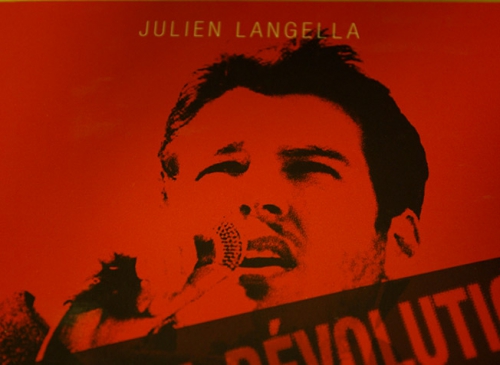
 À rebours de cette mentalité hédoniste, « les jeunes ne sont pas bons qu’à être traders, banquiers, toxicomanes ou che-guévaristes du samedi soir. La jeunesse est d’abord l’âge de la volonté et de la vitalité, donc des possibles et des idéals (p. 12) ». Et Julien Langella d’illustrer cette quête des idéaux avec quelques exemples historiques européens. Outre les réfractaires au STO en 1943 qui grossirent les maquis résistants (il aurait pu évoquer le désintéressement d’autres jeunes volontaires dans une armée européenne d’alors pour le front de l’Est…), l’auteur mentionne la jeunesse de l’antique Rome républicaine. « À Rome, l’éducation traditionnelle est dépassement de la souffrance comme le courage est dépassement de la peur. De nos jours en France, le Blanc lambda apprend de sa cougar de mère que son père était un “ connard d’égoïste ” (p. 23). » Il revient sur l’importance exceptionnelle en terme de génération des Wandervogel allemands apparus en 1901. Créés à l’écart du scoutisme anglo-saxon, les « Oiseaux-Migrateurs » fuient par la marche et une communauté effective de vie et d’objectifs, le monde industriel. Certains groupes constitueront ensuite l’ossature Bündische de la Révolution Conservatrice. Plus méconnues et plus politisées existent à partir de 1903 au Pays Basque espagnol les Mendigoxales. Autant école de cadres du Parti nationaliste basque que mouvement de jeunesse, ces structures informelles concilient formation militante, randonnées en groupe et exploration des paysages pyrénéens. L’auteur rappelle enfin le cas de l’école Saint Enda à Dublin fondée en 1908 par l’indépendantiste irlandais Patrick Pearse. Ce genre d’initiative manque cruellement (ou demeure trop restreint) alors que s’effondre le système scolaire tant public que privé. Toujours en colère, Langella lance : « Un jour, on pendra tous les profs et les pédagogues qui ont joué aux apprentis-sorciers avec nos cerveaux. Un jour, vous répondrez de vos saloperies (p. 64) ». Il proclame plus loin : « Dynamitons l’école et ses gardes empaillés : transformons-la en un gigantesque bivouac au milieu des arbres et des cours d’eau, où l’on apprendra à devenir des hommes avant d’être une colonie de termites ! (p. 134) ». Julien Langella se réfère ainsi à Ivan Illich qui rêver de « déscolariser la société » ! « Dans les établissements scolaires, poursuit-il, au lieu de leur imposer des films indigestes et sans fin sur la Shoah, on diffusera des films comme Tropa de Elite, qui vante les méthodes viriles de policiers brésiliens en croisade contre les vendeurs de mort, ou Requiem for a dream, qui relate la descente aux enfers d’une bande de junkies (p. 121). »
À rebours de cette mentalité hédoniste, « les jeunes ne sont pas bons qu’à être traders, banquiers, toxicomanes ou che-guévaristes du samedi soir. La jeunesse est d’abord l’âge de la volonté et de la vitalité, donc des possibles et des idéals (p. 12) ». Et Julien Langella d’illustrer cette quête des idéaux avec quelques exemples historiques européens. Outre les réfractaires au STO en 1943 qui grossirent les maquis résistants (il aurait pu évoquer le désintéressement d’autres jeunes volontaires dans une armée européenne d’alors pour le front de l’Est…), l’auteur mentionne la jeunesse de l’antique Rome républicaine. « À Rome, l’éducation traditionnelle est dépassement de la souffrance comme le courage est dépassement de la peur. De nos jours en France, le Blanc lambda apprend de sa cougar de mère que son père était un “ connard d’égoïste ” (p. 23). » Il revient sur l’importance exceptionnelle en terme de génération des Wandervogel allemands apparus en 1901. Créés à l’écart du scoutisme anglo-saxon, les « Oiseaux-Migrateurs » fuient par la marche et une communauté effective de vie et d’objectifs, le monde industriel. Certains groupes constitueront ensuite l’ossature Bündische de la Révolution Conservatrice. Plus méconnues et plus politisées existent à partir de 1903 au Pays Basque espagnol les Mendigoxales. Autant école de cadres du Parti nationaliste basque que mouvement de jeunesse, ces structures informelles concilient formation militante, randonnées en groupe et exploration des paysages pyrénéens. L’auteur rappelle enfin le cas de l’école Saint Enda à Dublin fondée en 1908 par l’indépendantiste irlandais Patrick Pearse. Ce genre d’initiative manque cruellement (ou demeure trop restreint) alors que s’effondre le système scolaire tant public que privé. Toujours en colère, Langella lance : « Un jour, on pendra tous les profs et les pédagogues qui ont joué aux apprentis-sorciers avec nos cerveaux. Un jour, vous répondrez de vos saloperies (p. 64) ». Il proclame plus loin : « Dynamitons l’école et ses gardes empaillés : transformons-la en un gigantesque bivouac au milieu des arbres et des cours d’eau, où l’on apprendra à devenir des hommes avant d’être une colonie de termites ! (p. 134) ». Julien Langella se réfère ainsi à Ivan Illich qui rêver de « déscolariser la société » ! « Dans les établissements scolaires, poursuit-il, au lieu de leur imposer des films indigestes et sans fin sur la Shoah, on diffusera des films comme Tropa de Elite, qui vante les méthodes viriles de policiers brésiliens en croisade contre les vendeurs de mort, ou Requiem for a dream, qui relate la descente aux enfers d’une bande de junkies (p. 121). »
 del.icio.us
del.icio.us
 Digg
Digg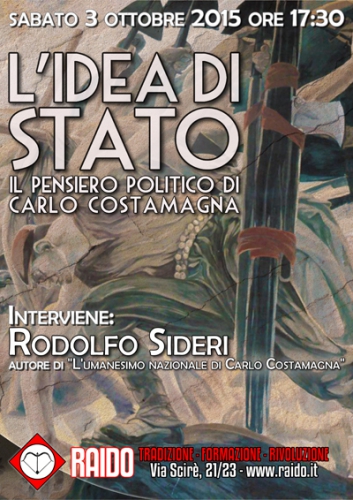
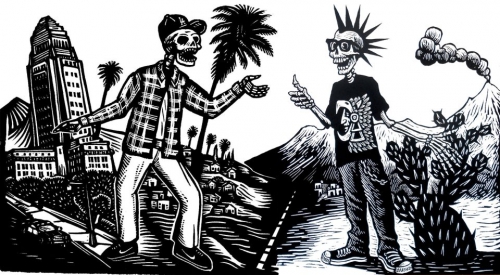
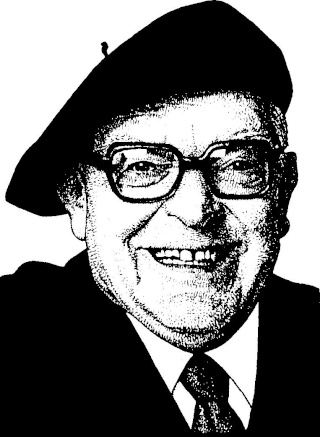 Cet article est le premier d'une série animée par des enseignants, collaborateurs de MÉTAMAG, consacrée à nos "grands hommes" et aux idées qui mènent le monde. Nous y accueillerons d'ailleurs tous les articles de nos lecteurs qui souhaiteront y participer. Un onglet supplémentaire "Des idées et des hommes" sera consacré à cette série lors du très prochain changement de maquette du site. Jean Piérinot.
Cet article est le premier d'une série animée par des enseignants, collaborateurs de MÉTAMAG, consacrée à nos "grands hommes" et aux idées qui mènent le monde. Nous y accueillerons d'ailleurs tous les articles de nos lecteurs qui souhaiteront y participer. Un onglet supplémentaire "Des idées et des hommes" sera consacré à cette série lors du très prochain changement de maquette du site. Jean Piérinot.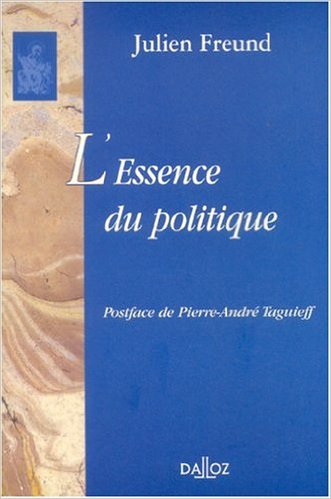 Depuis l’origine de l’humanité, les petits groupes d’humains ont toujours pratiqué la double morale: la loi du groupe impose d’agir dans le sens de la puissance collective, par exemple ne pas tuer ni voler son semblable, alors que les règles s’inversent dans les relations avec les autres. De plus, les anthropologues ont prouvé que pour la quasi totalité des tribus primitives, le nom de la tribu et celui d’homme se confondent. L’humanité s’incarne dans la tribu. A notre époque, les religions monothéistes qui se réfèrent à l’ancien testament ont gardé cet aspect primitif, le transformant en un racisme théologique. On ne peut être surpris en conséquence de la manière dont ont évolué les relations sociales, ni de la transformation des relations internationales. Le pouvoir économique globalitaire pratique cette double morale de manière permanente. Le mensonge notamment est systématique. L'axe de l’inhumanité (Washington, Londres, Bruxelles, Tel Aviv, Riad, Doha) ne tient pas ses promesses à l’égard de quiconque est situé hors de son axe. Il n’y a là non plus aucune politique, mais de l’impolitique et du néant.
Depuis l’origine de l’humanité, les petits groupes d’humains ont toujours pratiqué la double morale: la loi du groupe impose d’agir dans le sens de la puissance collective, par exemple ne pas tuer ni voler son semblable, alors que les règles s’inversent dans les relations avec les autres. De plus, les anthropologues ont prouvé que pour la quasi totalité des tribus primitives, le nom de la tribu et celui d’homme se confondent. L’humanité s’incarne dans la tribu. A notre époque, les religions monothéistes qui se réfèrent à l’ancien testament ont gardé cet aspect primitif, le transformant en un racisme théologique. On ne peut être surpris en conséquence de la manière dont ont évolué les relations sociales, ni de la transformation des relations internationales. Le pouvoir économique globalitaire pratique cette double morale de manière permanente. Le mensonge notamment est systématique. L'axe de l’inhumanité (Washington, Londres, Bruxelles, Tel Aviv, Riad, Doha) ne tient pas ses promesses à l’égard de quiconque est situé hors de son axe. Il n’y a là non plus aucune politique, mais de l’impolitique et du néant.





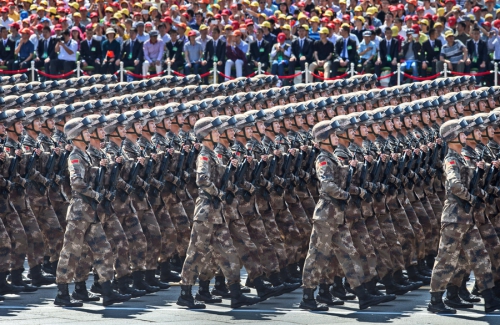
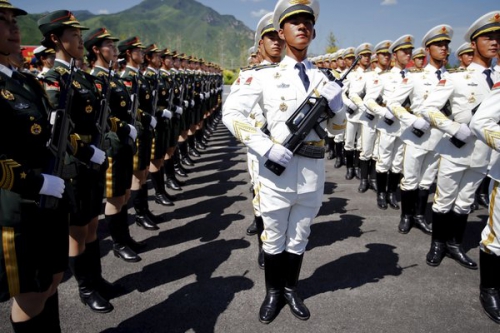
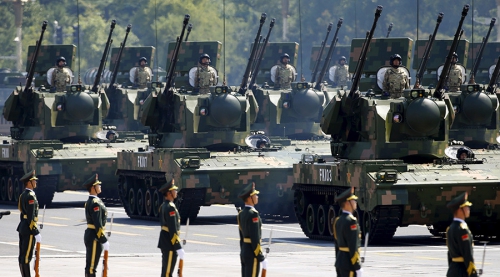
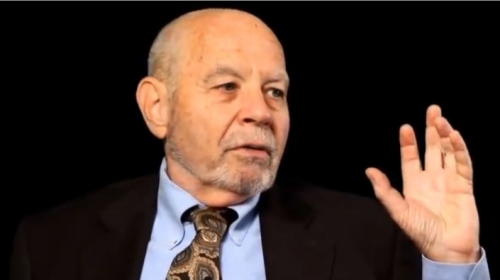
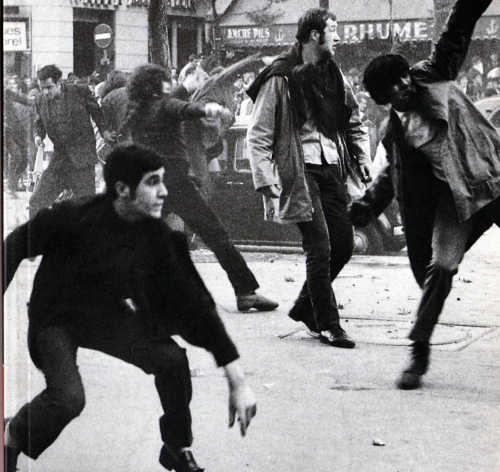
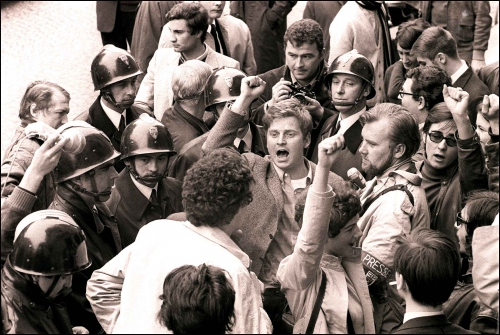
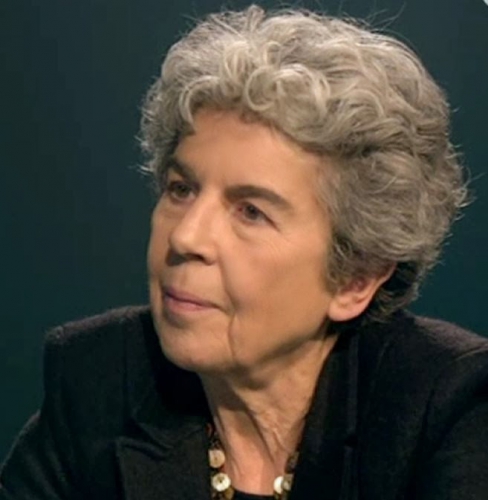
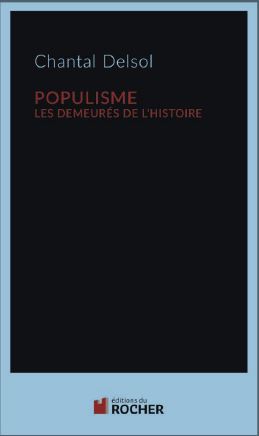 Pour réfléchir, il convient de prendre du recul. En France, le recul remonte aux Grecs, à l’aurore de la pensée, lorsque la question fondamentale fut exprimée ainsi : Pourquoi y-a-t-il quelque chose plutôt que rien? La superstition, la croyance, laissèrent peu à peu la place à la connaissance et la pensée politique émergea pour réfléchir sur l’organisation communautaire lorsque les niaiseries concernant les dieux, la caste sacerdotale qui parle en leur nom, etc. fut abandonnée en faveur de questionnements plus honnêtes, plus rationnels et plus humains.
Pour réfléchir, il convient de prendre du recul. En France, le recul remonte aux Grecs, à l’aurore de la pensée, lorsque la question fondamentale fut exprimée ainsi : Pourquoi y-a-t-il quelque chose plutôt que rien? La superstition, la croyance, laissèrent peu à peu la place à la connaissance et la pensée politique émergea pour réfléchir sur l’organisation communautaire lorsque les niaiseries concernant les dieux, la caste sacerdotale qui parle en leur nom, etc. fut abandonnée en faveur de questionnements plus honnêtes, plus rationnels et plus humains. 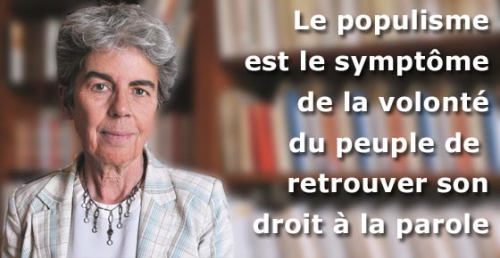
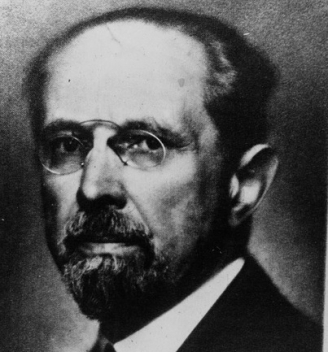
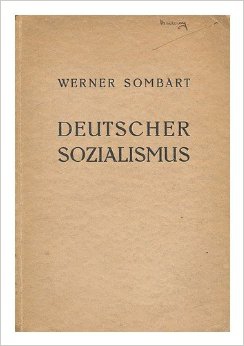 Wiewohl Sombart überhaupt den Einfluss eines säkularisierten Judentums für das Aufkommen von Kapitalismus und Sozialismus hoch anschlägt, so führt er doch nie beide kausal, d.h. schlechthin auf das Judentum zurück. Nur sei das spezifische Gepräge des modernen Kapitalismus wie des modernen Sozialismus „den Juden“ bzw. dem „jüdischen Geist“ zu verdanken, wobei Sombart übrigens letzteren – wie überhaupt alle „Volksgeister“ – von seiner leibseelischen Grundlage für ablösbar und sogar für übertragbar hält.
Wiewohl Sombart überhaupt den Einfluss eines säkularisierten Judentums für das Aufkommen von Kapitalismus und Sozialismus hoch anschlägt, so führt er doch nie beide kausal, d.h. schlechthin auf das Judentum zurück. Nur sei das spezifische Gepräge des modernen Kapitalismus wie des modernen Sozialismus „den Juden“ bzw. dem „jüdischen Geist“ zu verdanken, wobei Sombart übrigens letzteren – wie überhaupt alle „Volksgeister“ – von seiner leibseelischen Grundlage für ablösbar und sogar für übertragbar hält.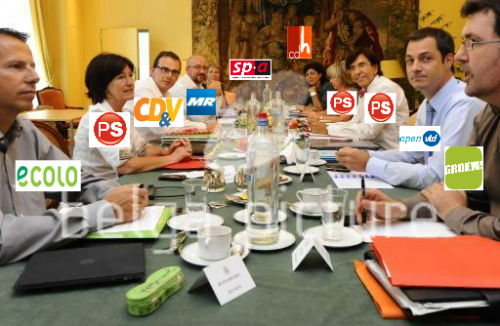

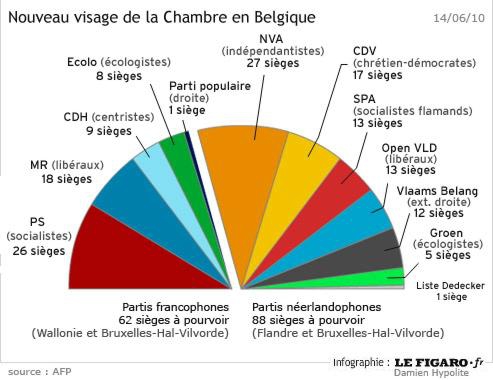
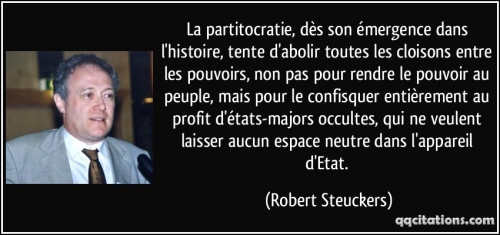

 On pourrait, facilement, opposer l’idéal de la cité (le rayonnement des familles patriciennes) à celui de l’imperium (le nivellement des citoyens afin qu’ils deviennent des sujets consentants). Que s’est-il passé, en Occident, pour que l’idéal de la cité finisse par imploser sous la pression d’un imperium protéiforme et « multicartes »?
On pourrait, facilement, opposer l’idéal de la cité (le rayonnement des familles patriciennes) à celui de l’imperium (le nivellement des citoyens afin qu’ils deviennent des sujets consentants). Que s’est-il passé, en Occident, pour que l’idéal de la cité finisse par imploser sous la pression d’un imperium protéiforme et « multicartes »? 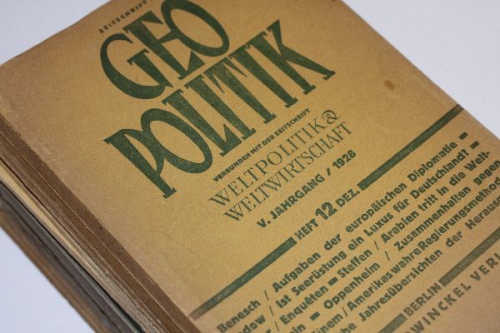
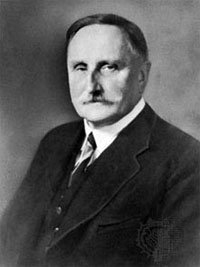 Geopolitik dient damit der Erhaltung der Freiheit eines Staates. Denn Wachsamkeit ist der Preis, der für Freiheit zu zahlen ist. Das ist in geopolitischem Sinne besonders bedeutsam. Weil es in der Geopolitik keine Freunde gibt, müssen die Feinde klar erkannt werden. Der Schmittsche Freund-Feind-Gegensatz macht hier den überlebenswichtigen Unterschied. Clausewitz Diktum „Die Gefahr ist überall“ bedeutet eben auch, dass der Feind überall sein kann. Dieses „Überall“ muss die Geopolitik präzisieren, Feinde und Gefahren erkennen und benennen und Bekämpfungsstrategien entwickeln.
Geopolitik dient damit der Erhaltung der Freiheit eines Staates. Denn Wachsamkeit ist der Preis, der für Freiheit zu zahlen ist. Das ist in geopolitischem Sinne besonders bedeutsam. Weil es in der Geopolitik keine Freunde gibt, müssen die Feinde klar erkannt werden. Der Schmittsche Freund-Feind-Gegensatz macht hier den überlebenswichtigen Unterschied. Clausewitz Diktum „Die Gefahr ist überall“ bedeutet eben auch, dass der Feind überall sein kann. Dieses „Überall“ muss die Geopolitik präzisieren, Feinde und Gefahren erkennen und benennen und Bekämpfungsstrategien entwickeln.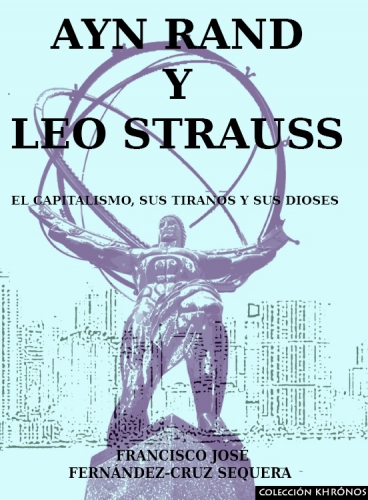
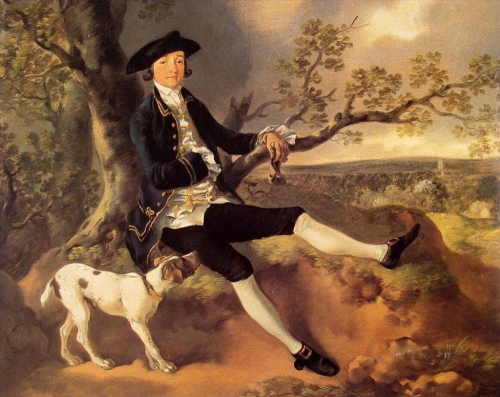
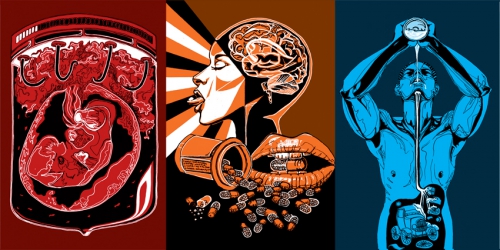
 Orwell opened a door for all to see a “nightmarish future” in which everyday life becomes harsh, an object of state surveillance, and control—a society in which the slogan “ignorance becomes strength” morphs into a guiding principle of mainstream media, education, and the culture of politics. Huxley shared Orwell’s concern about ignorance as a political tool of the elite, enforced through surveillance and the banning of books, dissent, and critical thought itself. But Huxley, believed that social control and the propagation of ignorance would be introduced by those in power through the political tools of pleasure and distraction. Huxley thought this might take place through drugs and genetic engineering, but the real drugs and social planning of late modernity lies in the presence of an entertainment and public pedagogy industry that trades in pleasure and idiocy, most evident in the merging of neoliberalism, celebrity culture, and the control of commanding cultural apparatuses extending from Hollywood movies and video games to mainstream television, news, and the social media.
Orwell opened a door for all to see a “nightmarish future” in which everyday life becomes harsh, an object of state surveillance, and control—a society in which the slogan “ignorance becomes strength” morphs into a guiding principle of mainstream media, education, and the culture of politics. Huxley shared Orwell’s concern about ignorance as a political tool of the elite, enforced through surveillance and the banning of books, dissent, and critical thought itself. But Huxley, believed that social control and the propagation of ignorance would be introduced by those in power through the political tools of pleasure and distraction. Huxley thought this might take place through drugs and genetic engineering, but the real drugs and social planning of late modernity lies in the presence of an entertainment and public pedagogy industry that trades in pleasure and idiocy, most evident in the merging of neoliberalism, celebrity culture, and the control of commanding cultural apparatuses extending from Hollywood movies and video games to mainstream television, news, and the social media. At the same time, Orwell’s warning about “Big Brother” applies not simply to an authoritarian-surveillance state but also to commanding financial institutions and corporations who have made diverse modes of surveillance a ubiquitous feature of daily life. Corporations use the new technologies to track spending habits and collect data points from social media so as to provide us with consumer goods that match our desires, employ face recognition technologies to alert store salesperson to our credit ratings, and so it goes. Heidi Boghosian points out that if omniscient state control in Orwell’s 1984 is embodied by the two-way television sets present in each home, then in “our own modern adaptation, it is symbolized by the location-tracking cell phones we willingly carry in our pockets and the microchip-embedded clothes we wear on our bodies.”
At the same time, Orwell’s warning about “Big Brother” applies not simply to an authoritarian-surveillance state but also to commanding financial institutions and corporations who have made diverse modes of surveillance a ubiquitous feature of daily life. Corporations use the new technologies to track spending habits and collect data points from social media so as to provide us with consumer goods that match our desires, employ face recognition technologies to alert store salesperson to our credit ratings, and so it goes. Heidi Boghosian points out that if omniscient state control in Orwell’s 1984 is embodied by the two-way television sets present in each home, then in “our own modern adaptation, it is symbolized by the location-tracking cell phones we willingly carry in our pockets and the microchip-embedded clothes we wear on our bodies.” Relentlessly entertained by spectacles, people become not only numb to violence and cruelty but begin to identify with an authoritarian worldview. As David Graeber suggests, the police “become the almost obsessive objects of imaginative identification in popular culture… watching movies, or viewing TV shows that invite them to look at the world from a police point of view.”
Relentlessly entertained by spectacles, people become not only numb to violence and cruelty but begin to identify with an authoritarian worldview. As David Graeber suggests, the police “become the almost obsessive objects of imaginative identification in popular culture… watching movies, or viewing TV shows that invite them to look at the world from a police point of view.” Another egregious example of neoliberalism’s Orwellian assault on higher education can be found in the policies promoted by the Republican Party members who control the North Carolina Board of Governors. Just recently it has decimated higher education in that state by voting to cut 46 degree programs. One member defended such cuts with the comment: “We’re capitalists, and we have to look at what the demand is, and we have to respond to the demand.”
Another egregious example of neoliberalism’s Orwellian assault on higher education can be found in the policies promoted by the Republican Party members who control the North Carolina Board of Governors. Just recently it has decimated higher education in that state by voting to cut 46 degree programs. One member defended such cuts with the comment: “We’re capitalists, and we have to look at what the demand is, and we have to respond to the demand.”
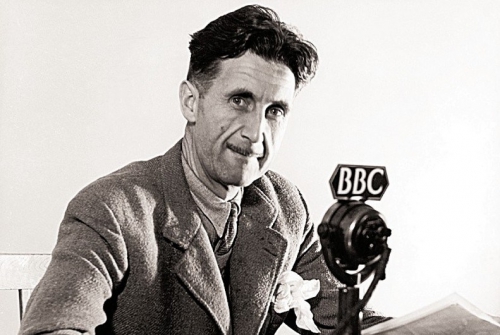
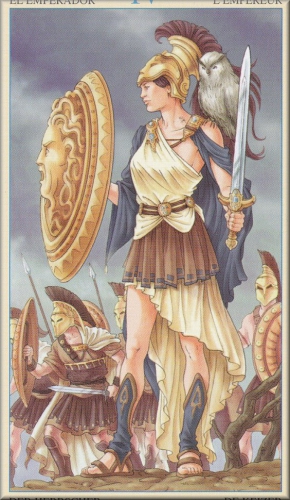


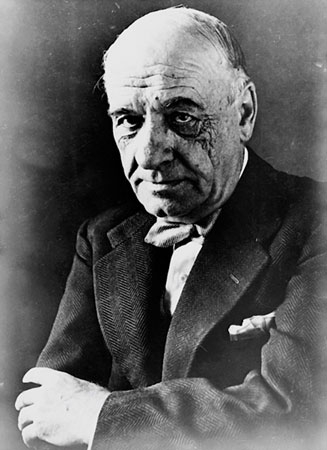 Ortega clearly appreciates the value of modern technology and admires the skills of those who develop and apply it. But he does not think that technocrats constitute a true elite. In fact, he tends to regard them merely as mass men with high IQs—clever barbarians, indispensable barbarians, but barbarians nonetheless. Ortega also thought that the progress of industrialism and technology would bring about the worst form of mass society: a global and homogeneous mass society.
Ortega clearly appreciates the value of modern technology and admires the skills of those who develop and apply it. But he does not think that technocrats constitute a true elite. In fact, he tends to regard them merely as mass men with high IQs—clever barbarians, indispensable barbarians, but barbarians nonetheless. Ortega also thought that the progress of industrialism and technology would bring about the worst form of mass society: a global and homogeneous mass society.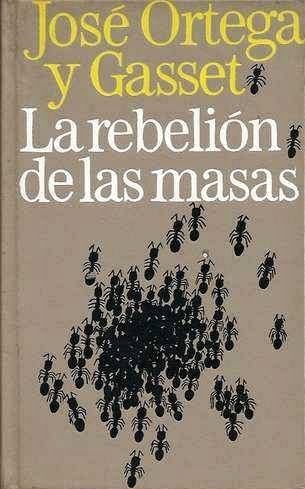 Ayn Rand’s philosophical journal for May 16, 1934, begins with a passage by the American journalist Alexander Wolcott contrasting the cultural atmosphere of the Soviet Union with the West. It closes with a passage copied out from the last chapter of The Revolt of the Masses. Between them, Rand wrote two remarkable paragraphs:
Ayn Rand’s philosophical journal for May 16, 1934, begins with a passage by the American journalist Alexander Wolcott contrasting the cultural atmosphere of the Soviet Union with the West. It closes with a passage copied out from the last chapter of The Revolt of the Masses. Between them, Rand wrote two remarkable paragraphs:

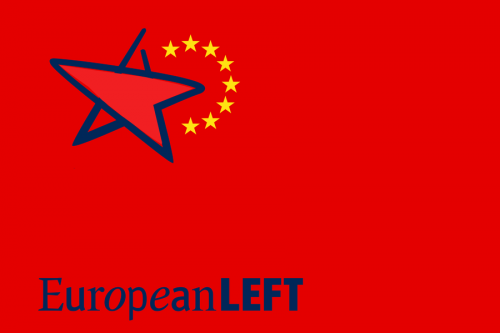
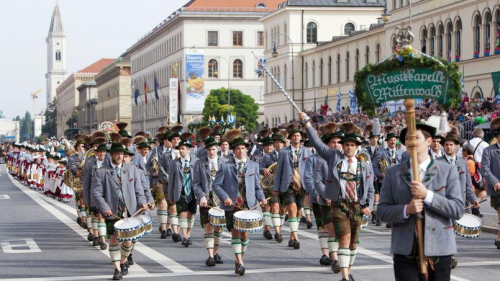
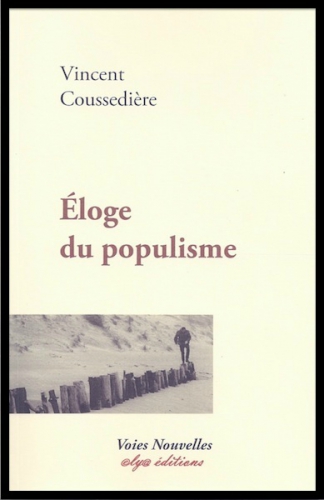 Trois ans après la parution de L’éloge du populisme par Vincent Coussedière, ce que les médias appellent le « danger » du populisme, ou la « marée noire » du populisme n’a cessé de prendre de l’ampleur. Occasion de revenir sur ce thème. Le populisme est souvent défini comme la démagogie dans la démocratie. C’est à peu de choses près la définition de Pierre-André Taguieff. Et s’il était autre chose ? Et si c’était l’irruption du peuple dans la politique, quand le peuple juge que ses dirigeants ne sont pas à la hauteur ? C’est l’hypothèse défendue par le philosophe Vincent Coussedière. Comme auparavant Chantal Delsol (
Trois ans après la parution de L’éloge du populisme par Vincent Coussedière, ce que les médias appellent le « danger » du populisme, ou la « marée noire » du populisme n’a cessé de prendre de l’ampleur. Occasion de revenir sur ce thème. Le populisme est souvent défini comme la démagogie dans la démocratie. C’est à peu de choses près la définition de Pierre-André Taguieff. Et s’il était autre chose ? Et si c’était l’irruption du peuple dans la politique, quand le peuple juge que ses dirigeants ne sont pas à la hauteur ? C’est l’hypothèse défendue par le philosophe Vincent Coussedière. Comme auparavant Chantal Delsol (